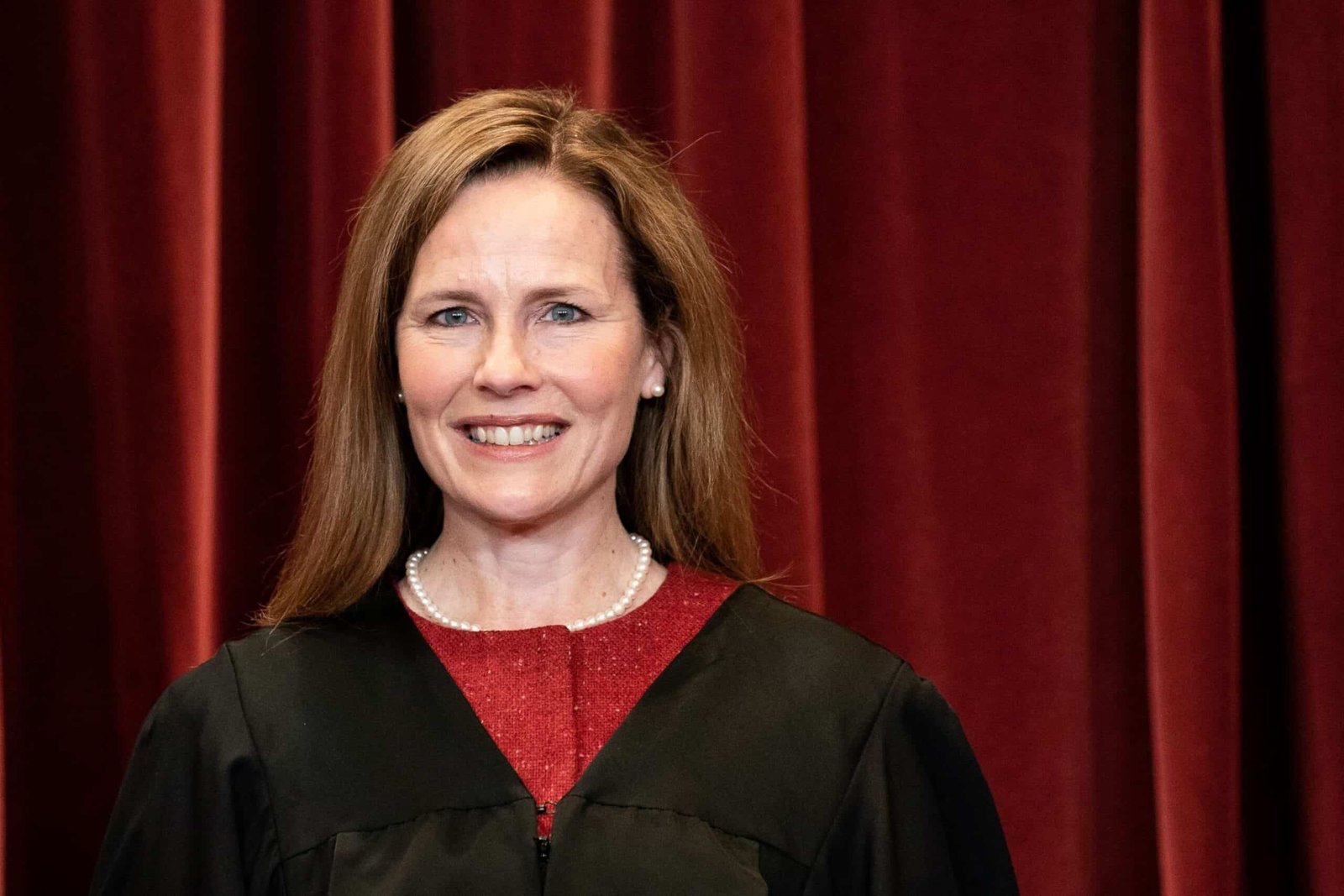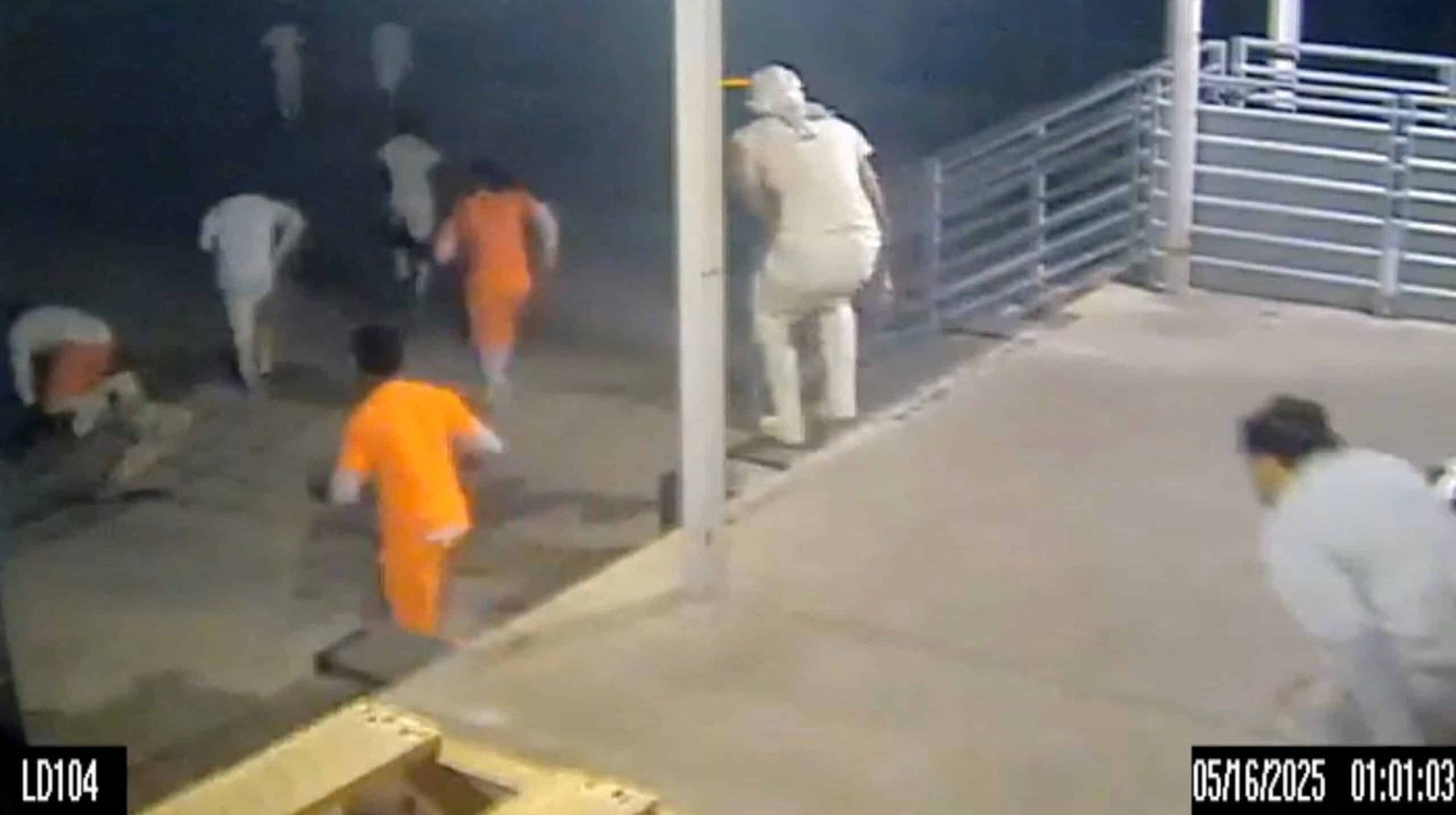Scotus limits national orders, partial victory for Trump in citizenship rights

The Supreme Court on Friday granted a portion of the national order issued to President Donald Trump’s executive order to effectively end the citizenship of the rights of the rights, giving Trump victory in the midst of his dispute with federal judges who had blocked parts of the second term agenda.
That 6-3 opinions came from judge Amy Coney Barrett. Three liberal judges of the court disagree.
The court, however, said that he did not decide whether the executive order of Trump was constitutional, more focused on whether a single judge had the authority to issue universal orders.
“Government applications for partial lives from preliminary orders are given, but only as far as the order is broader than what is needed to provide full assistance to each plaintiff by standing to demand,” he said.

On April 23, 2021, the photo file, Associate Justice Amy Coney Barrett was established during the photo of the Judge Group at the Supreme Court in Washington, DC
Pool/getty image, file
Trump took a round of victory in a rare appearance in the White House direction room shortly after the decision dropped.
“The extraordinary decision, which we really like,” Trump told reporters.
“This morning the Supreme Court has given a monumental victory for the constitution, the separation of power and the rule of law in detrimental to the use of excessive national commands to disrupt the normal function of the executive branch,” he said.

President Donald Trump spoke with Attorney General Pam Bondi and Deputy Attorney General Todd Blanche during a press conference in the White House Briefing Briefing Room, June 27, 2025, in Washington.
Jacquelyn Martin/AP
However, the legal challenges will continue to be Trump’s order to reject citizenship to children born in US land for immigrants who violate the law or those who are in temporary immigrant status, because the court does not decide on the benefits of the case.
The individual plaintiff in these cases is still protected based on the orders issued.
“Forbaking the enforcement of executive orders to the child of a plaintiff an individual will provide full assistance Plaintiff: his child will not be rejected by citizenship,” Barrett said. “Expanding commands to cover all other individuals who are located will not make it more complete.”
Trump can immediately move forward, by developing a plan to implement a citizenship order of the rights of the rights – which will not be valid for 30 days.
The decision on Friday is the encouragement for Trump in his cross war on national orders that have blocked several executive actions he took so far in his second term.
Supporting national orders says they function as an important examination for potential behavior and prevent widespread hazards. Critics say they give too much authority to individual judges and give incentives to the plaintiff to try to avoid random assignments and submit jurisdiction with judges who may sympathize in their perspective.

The US Supreme Court Building was seen in the morning before the judge was expected to issue an opinion in a delayed case, in Washington, June 14, 2024.
Elizabeth Frantz/Reuters
Judge Sonia Sotomayor read a difference of opinion hard from the bench, criticizing the majority of the court.
“There is no safe right in the new legal regime made by the court,” Sotomayor wrote. “Today, the threat is for citizenship rights. Tomorrow, different governments can try to take firearms from citizens who violate the law or prevent people from certain religions to gather to worship.”
“The majority argues that, the litigation of complicated class action that is not complicated, the court cannot fully order even a policy that violates such laws except doing that is needed to buy formal parties that are truly relieved,” he added. “That plays a meaningful guarantee of constitutional in the name only for everyone who is not a party in the lawsuit. Because I will not be involved so much attack on our legal system, I have different opinions.”
Sotomayor accused Trump’s administration of “game expertise” and said that with this decision the majority of the Supreme Court “played together.”
“Every source of law that might emphasize, citizenship of the right of the rights is land law,” he wrote in differences of opinion.
Judge Brett Kavanugh wrote separately to underline, in his view, the narrowness of the decision, insisted that the claims of class action were still available and that the Supreme Court itself could and was likely to review a lower court along the way in connection with the scope of assistance from the alleged illegal government policy.
Kavanugh also noted that the administrative procedure law remains a way for the plaintiff to bring challenges to the presidential policy nationally.
The reaction to the decision was mostly divided along the party line, with the Republican party calling it victory for the Democratic government expressed serious concern that Trump’s actions could not be checked.
“The Supreme Court’s decision to limit the court of the authority of their long held to block illegal executive actions is an unprecedented and frightening step towards authoritarianism, a great danger for our democracy, and predicted transfer from this extremist Almighty Court,” Leader of the Chuck Schumer Senate is writing about X. “






